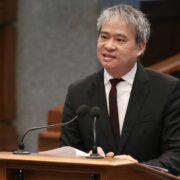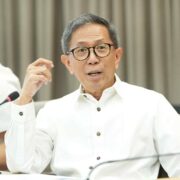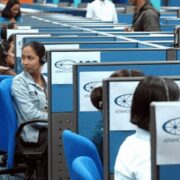Proposed law shielding labor from AI could deter investors
The head of a prominent group of local employers expressed wariness about a bill filed in Congress which aims to regulate the use of artificial intelligence (AI) in the workplace, citing that such a law could discourage foreign businesses from investing in the country.
Employers Confederation of the Philippines (Ecop) president Sergio Ortiz-Luis Jr. on Thursday said that developing countries such as the Philippines which are in need of investments should be “very cautious” about such a law, noting that it could affect investor sentiment.
“We are trying to attract investments. We should not be passing laws that might discourage investments. At the end of the day, internationally, the policy is [to] leave management [alone] as long as they are following basic laws of the land,” Ortiz-Luis said in an interview with the ABS-CBN News Channel.
The Ecop official added that it disincentivizes investors when they are not given the freedom to choose whether to hire actual people or employ the use of AI in their operations.
Quezon City Rep. Juan Carlos “Arjo” Atayde on Nov. 7 filed House Bill No. 9448, or the Protection of Labor Against Artificial Intelligence Automation Act, which seeks to regulate the AI use for administrative or operational tasks in workplaces.
The measure, which is aimed at protecting the job security of employees, also seeks to prohibit the replacement of human workers.
Further, it discourages employers and recruitment firms from using AI and automated systems as their primary basis for the hiring and firing of employees.
The Ecop official scored this portion of the bill, citing the difficulty of applying it in the real world.
“I don’t understand that portion of the [proposed] law. How do you know where the employers will base their decision? How do you know that [the decision] was based on AI?,” said Ortiz-Luis.
“It’s good to place it in law but you are just putting out laws which cannot be implemented anyway,” he added.
Additionally, the Ecop official said he believes that other developing countries will be slow in adopting such laws due to the perceived impact on attracting investments.
The government, through the Department of Trade and Industry, has cited AI adoption as an essential part of its policy direction, with an AI road map currently in joint development with industry players and stakeholders.
This thrust is particularly targeted to help the Philippines’ nearly $30-billion business process outsourcing sector, which is still considered today as a “sunshine industry” and one that is on track to double its gross revenue by 2028. INQ
















